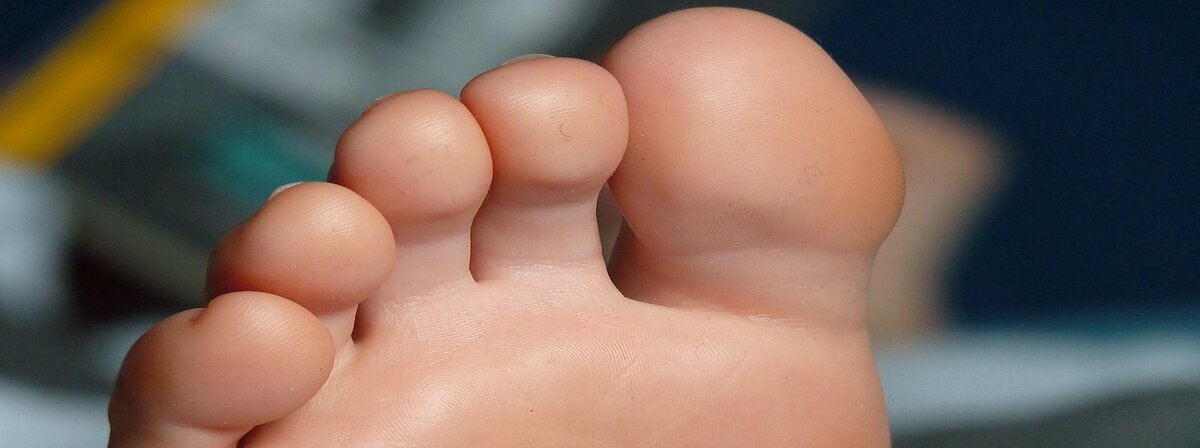
Understanding Verrucas: Diagnosis, Causes, and Removal Options
What Is a Verruca?
A verruca is a specific type of wart that develops on the sole of the foot. These warts lead to the formation of hard skin, which can cause pain when walking, often described as similar to stepping on a needle.
Diagnosing a Verruca
Verrucas are identifiable through certain key characteristics:
The affected skin area appears white.
Verrucas are usually flat and not raised.
They primarily appear on the soles of the feet.
Verrucas can manifest as a single wart or as multiple warts, sometimes forming a cluster of smaller warts around a central, larger one. The pressure of your body weight can make verrucas grow inward, increasing the discomfort.
Verrucas with Black Dots
Occasionally, patients notice small black dots in the middle of verrucas. These dots are tiny specks of dried blood and are relatively common.
Causes of Verrucas
Verrucas are caused by the Human Papilloma Virus (HPV), specifically a few strains within this virus family. These warts are contagious and are typically transmitted through contact with minuscule particles of infected skin. The virus enters the body through small breaks in the skin. Verrucas can often be contracted in public places such as swimming pools. Although the virus is not highly contagious, it is essential to take preventive measures to avoid passing the wart to others, such as:
Wearing flip-flops in communal areas like locker rooms and public swimming pools.
Avoiding the sharing of towels, shoes, or socks.
Formation of Verrucas
Verrucas result from the overgrowth and hardening of the skin in a specific area. Friction from walking and footwear can exacerbate this, leading to pain and discomfort.
Depth of Verrucas
Verrucas can grow to a diameter of up to half an inch and may be pushed inward by your body’s weight as they develop, resulting in several millimeters of the wart pressing into the foot.
Bleeding Verrucas
Verrucas can sometimes bleed, typically due to rubbing, friction during activity, or pressure from footwear. In such cases, treat the bleeding like a cut or graze by:
Applying pressure to stop the bleeding.
Ensuring the bleeding area is cleaned after it stops.
Applying a plaster to prevent infection or further bleeding.
However, if your verruca frequently or easily bleeds, it’s advisable to seek guidance from a specialist.
Removing a Verruca
While verrucas may resolve on their own as your immune system combats the underlying virus, this can take a considerable amount of time, with some verrucas persisting for years. Consequently, many patients seek faster removal methods.
There is no guaranteed treatment for verrucas, but if one approach fails, alternatives can be considered to increase the chances of success.
Home Remedies
Over-the-counter treatments from pharmacies often contain Salicylic Acid in the form of gels or ointments and can be used at home.
Specialist Treatments
In addition to home remedies, specialized treatments are available through your GP or a Podiatrist. These include:
Cryotherapy: Destroying the verruca by freezing it, typically using liquid nitrogen.
Verruca Needling: Stimulating your body’s immune response to the wart by puncturing it with sterile needles.
Silver Nitrate: Chemically burning the verruca away.
Electrocautery: Using electrically heated needles to burn off the verruca.
Surgery: Removing the verruca through surgical means, though this is not the preferred option due to potential pain, disruption, and scarring.
Signs of a Dying Verruca
Identifying a dying verruca can be challenging. However, if you are actively treating the verruca, it may change color as it dies, often turning black when its blood supply is cut off.
Learn More
If you wish to schedule a consultation regarding a verruca concern, please do not hesitate to contact our London dermatologists.
FAQ
How long does it take for a verruca to go away on its own?
Verrucas can persist for years but may eventually resolve as your immune system fights the virus.
Are verrucas contagious to others in my household?
While they can be contagious, the risk of transmission at home is relatively low. Avoid sharing personal items.
Can I swim with a verruca?
It’s best to avoid public pools to prevent spreading the virus. Wear waterproof coverings if necessary.
Will removing a verruca leave a scar?
Specialist removal methods aim to minimize scarring, but individual outcomes may vary.
Can I use over-the-counter treatments for verrucas on children?
Always consult a healthcare professional for children’s treatment options and guidance.


